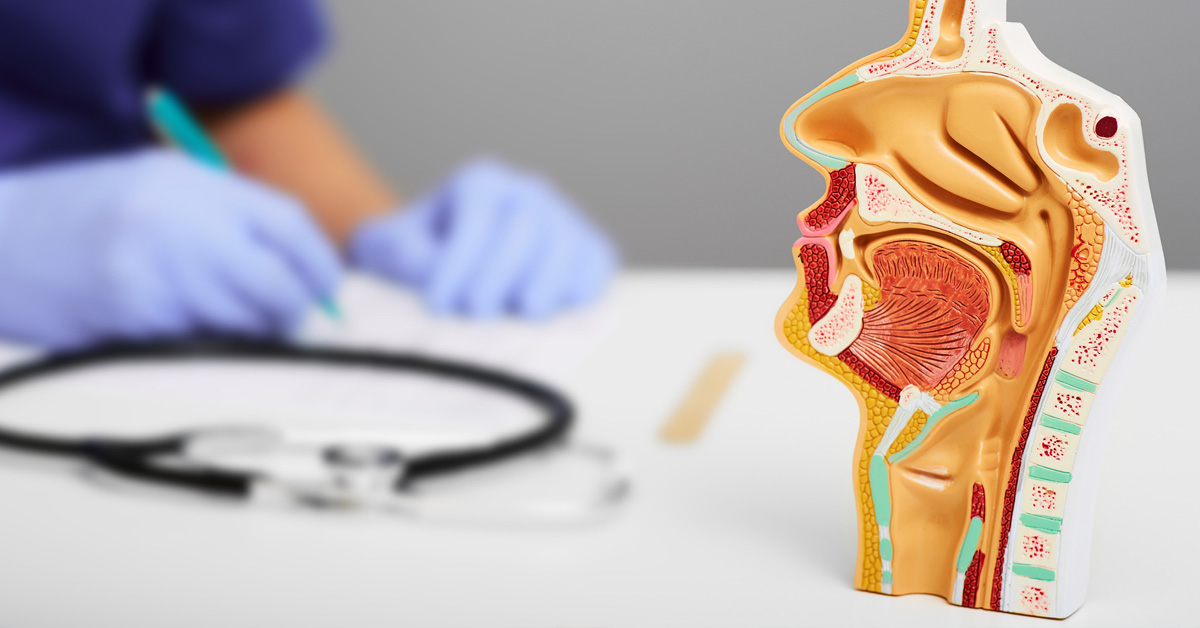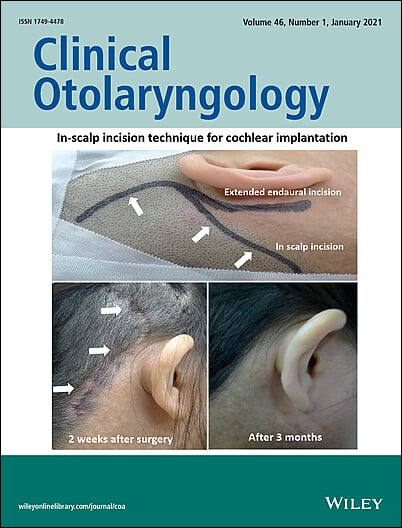Checking out the Area of Otolaryngology: What to Anticipate When You Speak With an ENT
Otolaryngology, frequently described as ENT, includes the medical diagnosis and treatment of nose, throat, and ear disorders. For those experiencing relevant problems, consulting an ENT professional can offer clarity and alleviation. Comprehending what to expect during such consultations is vital for effective interaction and care. This summary will outline vital aspects of the ENT experience, consisting of common reasons for brows through and the processes associated with diagnosis and therapy.

Understanding Otolaryngology: A Review
Otolaryngology, often described as ENT (Nose, throat, and ear) medicine, is a specific branch of medicine that focuses on the diagnosis and therapy of conditions influencing these critical locations of the human body. This area includes a wide variety of conditions, consisting of those pertaining to hearing, balance, breathing feature, and speech. Otolaryngologists are educated to take care of both medical and clinical therapies, utilizing advanced methods and modern technologies. Their competence expands beyond conventional conditions, dealing with problems such as allergies, sinus infections, and hearing loss. In addition, they play a crucial duty in the monitoring of head and neck cancers, giving comprehensive care customized to individual patient requirements. Overall, otolaryngology remains vital for keeping wellness and high quality of life in damaged individuals.
Usual Factors to See an ENT Expert
Several individuals look for the proficiency of an ENT expert for a selection of reasons, mirroring the varied nature of conditions that influence the ear, nose, and throat. Common concerns include chronic sinus problems, which usually results in consistent nasal blockage and facial pain. Allergies and their linked signs, such as itching and sneezing, additionally trigger check outs to these specialists (Voice). Hearing loss, whether unexpected or gradual, is another considerable factor for assessment. Additionally, people may look for evaluation for throat problems, including consistent hoarseness or swallowing difficulties. Sleep apnea, identified by disturbed breathing during rest, is regularly dealt with by ENT experts too. Each of these problems highlights the relevance of specialized treatment in managing complicated ENT-related wellness concerns
Getting ready for Your ENT Visit
When preparing for an ENT consultation, it is important to gather appropriate details and think about any certain problems. Individuals ought to compile an in-depth clinical history, including previous ear, nose, or throat issues, surgical treatments, and existing drugs. Recording symptoms-- such as duration, frequency, and intensity-- can supply useful insights for the ENT specialist. In addition, individuals need to prepare a listing of inquiries they wish to ask, making sure that all issues are resolved during the see. Bringing along any relevant medical documents or examination results can additionally help the ENT in understanding the individual's problem. Individuals should verify their visit details, consisting of time, place, and day, to lessen any last-minute confusion. Correct prep work can boost the efficiency of the assessment and result in much better results.
What to Anticipate Throughout the Assessment
As the consultation starts, the person can expect to take part in a detailed discussion with the ENT professional about their signs and medical background. The specialist will certainly make inquiries regarding the duration, frequency, and seriousness of symptoms such as hearing loss, nasal blockage, or sore throat. In addition, the individual's previous clinical conditions, medications, and any kind of relevant family background will certainly be examined, assisting the specialist in creating a complete understanding of the client's health and wellness. The ENT may additionally inquire about way of living aspects, such hearing aid in spanish as exposure to allergens or toxic irritants. This open dialogue establishes a structure for the examination, ensuring that the patient's problems are addressed and establishing the stage for any required assessments or referrals for treatment.
Diagnostic Examinations and Procedures in Otolaryngology
An array of diagnostic tests and treatments are important in otolaryngology to properly assess and identify problems influencing the ear, throat, and nose. Common examinations consist of audiometry, which determines hearing feature, and tympanometry, examining middle ear stress. Nasal endoscopy permits visualization of the nasal flows and sinuses, while laryngoscopy examines the throat and singing cords. Imaging strategies, such as CT scans and MRIs, offer comprehensive sights of head and neck structures. Allergic reaction testing may likewise be performed to recognize triggers for sinus or respiratory problems. These diagnostic devices enable ENT experts to create an extensive understanding of patients' conditions, making sure tailored and efficient administration plans. Correct medical diagnosis is crucial for effective therapy end results in otolaryngology.
Therapy Alternatives Offered by ENT Specialists
ENT professionals use a range of therapy options customized to deal with certain conditions influencing the throat, ear, and nose. These treatments vary from traditional approaches, such as medicine and way of living adjustments, to even more intrusive treatments. Allergic reactions might be handled with antihistamines or immunotherapy, while chronic sinus problems might need nasal corticosteroids or sinus surgical procedure. For hearing loss, ENT experts frequently advise listening device or surgical treatments like cochlear implants. In cases of throat disorders, options can include speech therapy or operations to get rid of blockages. Furthermore, they may provide guidance for taking care of rest apnea, including the use of CPAP tools or medical interventions. In general, the objective is to boost people' high quality of life with individualized care and effective treatment strategies.
When to Look For Follow-Up Treatment With an ENT
When to look for follow-up care with an ENT professional is vital for taking care of ongoing signs or difficulties related to ear, throat, and nose problems, recognizing. Patients should think about scheduling a follow-up appointment if symptoms continue despite first treatment, such as persistent ear discomfort, nasal blockage, or throat discomfort. Modifications in hearing, balance concerns, or unusual nasal discharge may likewise call for more evaluation. Additionally, if an individual experiences negative effects from suggested medicines or has undertaken an operation, follow-up care is important to keep track of recovery and attend to any kind of concerns. Timely appointments can guarantee efficient monitoring of conditions, stop prospective complications, and supply peace of mind pertaining to one's wellness. Looking for follow-up treatment advertises positive wellness monitoring in otolaryngology.
Regularly Asked Questions

What Certifications Should I Look for in an ENT Professional?
When seeking an ENT professional, one should try to find board accreditation, appropriate experience, and solid individual reviews. Furthermore, effective interaction abilities and a thoughtful explanation method can considerably enhance the overall treatment experience.
Exactly how Do I Choose the Right ENT for My Requirements?
Choosing the ideal ENT specialist entails evaluating their certifications, experience, and client testimonials (ENT Clinic). It is necessary to ponder their interaction style and strategy to treatment, ensuring they align with the individual's certain health and wellness requirements and preferences
Exist Any Type Of Dangers Linked With ENT Procedures?
The threats linked with ENT procedures may include infection, blood loss, anesthetic complications, and prospective damage to bordering frameworks. Patients ought to go over these dangers with their physician to understand specific worries and guarantee educated choices.
Exactly How Can I Handle Stress And Anxiety Before My ENT Appointment?
To manage anxiousness before a consultation, people can practice deep breathing workouts, visualize favorable end results, prepare questions in development, and look for assistance from close friends or family, promoting a feeling of peace of mind and peace.
What Should I Do if I Experience Side Effects From Therapy?
The individual must immediately report them to their healthcare supplier if side effects from treatment happen. Changes to therapy or additional interventions might be necessary to ensure security and efficiency in handling their condition - ENT Doctor. As the consultation begins, the patient can anticipate to engage in a comprehensive conversation with the ENT expert concerning their signs and symptoms and medical find out here now background. These analysis devices enable ENT professionals to establish a thorough understanding of individuals' problems, ensuring customized and efficient monitoring strategies. ENT professionals supply a selection of treatment alternatives customized to deal with certain problems affecting the nose, throat, and ear. When seeking an ENT expert, one need to look for board certification, pertinent experience, and strong individual testimonials. Picking the right ENT specialist includes assessing their credentials, experience, and person evaluations